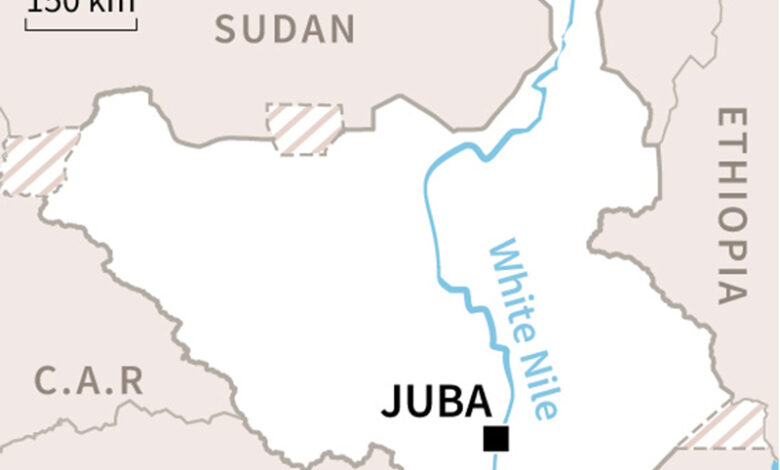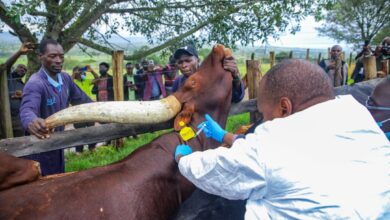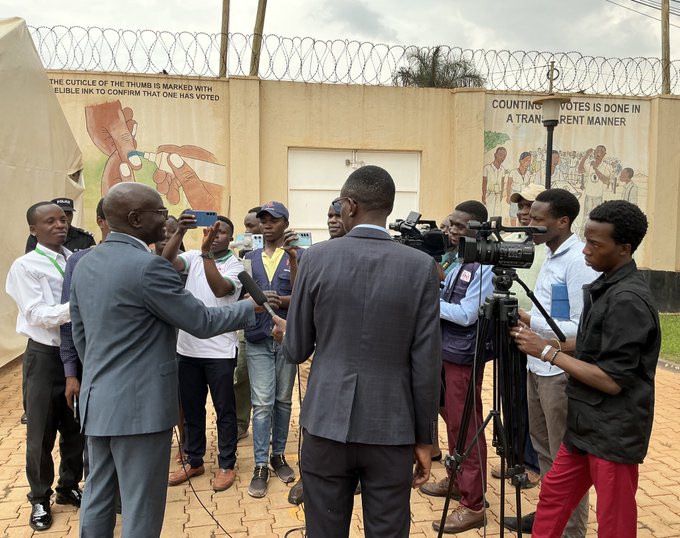Ugandan killed in Juba-Nimule Highway ambush
Though the identity of the deceased remains unknown, the attack has once again brought into sharp focus the perils faced by travelers along the Juba-Nimule highway, a lifeline for trade and movement between Uganda and South Sudan.

A Ugandan national has been tragically killed in yet another attack on the volatile Juba-Nimule highway, South Sudan.
The attack, which occurred on Tuesday morning, involved gunfire from suspected rebels linked to the National Salvation Front (NAS), leaving behind a grim reminder of the persistent insecurity along this crucial trade route.
The ambush unfolded near the Kubi-Jebellen area in Central Equatoria State, between 9 am and 10 am, as the Kampala-bound bus, carrying scores of passengers, was heading to Uganda. South Sudanese military officials quickly confirmed the incident.
“We can confirm the death of one Ugandan national, and eight others were injured, including one of our National Security Service officers,” stated Major General Lul Ruai Koang, spokesperson for the South Sudan People’s Defence Forces (SSPDF).
Though the identity of the deceased remains unknown, the attack has once again brought into sharp focus the perils faced by travelers along the Juba-Nimule highway, a lifeline for trade and movement between Uganda and South Sudan.
The route, despite its importance, has been a hotspot for ambushes by rebel factions, with civilians often caught in the crossfire.
“I condemn this cowardly attack. Targeting civilians is an act of terror, and we will not rest until the perpetrators are brought to justice,” added Gen. Ruai. He assured the public that security along the highway had been reinforced following the ambush, promising that South Sudanese forces were on the trail of the attackers.
Rising Security Concerns on Juba-Nimule Highway
The Juba-Nimule highway has long been plagued by insecurity, with several ambushes taking place over the years.
Just last October, 11 people were killed in a similar attack, heightening fears among travelers, especially those from East African nations that rely on the road for economic and humanitarian reasons.
One passenger, still in shock, recounted the terrifying ordeal: “We were just a few hours into our journey when gunfire erupted. It was chaos. People were screaming, and I saw some being hit before I managed to duck for cover,” he recalled, trembling.
While the SSPDF responded quickly to the scene, securing the area and pursuing the rebels, at least 14 passengers were abducted by the gunmen. It is believed that the attackers belong to NAS, a rebel group led by Lt. Gen. Thomas Cirilo Swaka, a former South Sudan Army Chief of Staff.
“We managed to get some of the injured to Bibia Health Center in Uganda’s Amuru District. They’re receiving treatment, but the fear remains. This kind of violence can’t go unchecked,” said a local health worker, who helped transport the victims.
Among those receiving treatment are four Ugandans and one South Sudanese refugee, all suffering from gunshot wounds.
International and Regional Implications
The security of the Juba-Nimule highway is not just a South Sudanese issue; it has broad implications for regional stability. Uganda, as South Sudan’s neighbor and one of its largest trading partners, is deeply concerned about the continued instability on this route. With frequent attacks, businesses in both countries have been affected, and traders increasingly fear for their lives and goods.
“We urge the South Sudanese government to secure this route. Too many lives have been lost. It’s time for decisive action,” stated an MP on the condition of anonymity.
The highway serves as a critical link between Juba and other East African nations. Many Ugandans, Kenyans, and even South Sudanese nationals depend on it for daily commerce, yet the persistent insecurity has disrupted trade and left many feeling vulnerable.
Calls for Greater Security Measures
As South Sudan’s government continues its pursuit of NAS rebels, there is a growing call for more robust measures to secure the highway and protect travelers. Community leaders in border regions have been vocal about the need for regional cooperation to address the recurring attacks.
“Uganda and South Sudan must work together to ensure the safety of their citizens. This highway is not just a road; it is a symbol of hope for peace and economic growth in the region,” said an official from the Ugandan Ministry of Foreign Affairs.
While the SSPDF has ramped up efforts to chase the gunmen, concerns remain about the safety of the highway. For the families of the victims, each attack reopens wounds that may never heal.
As this latest incident shows, the Juba-Nimule highway remains perilous. Unless decisive action is taken, both Ugandans and South Sudanese will continue to live in fear, traveling along a road where the next ambush could be just around the corner.







